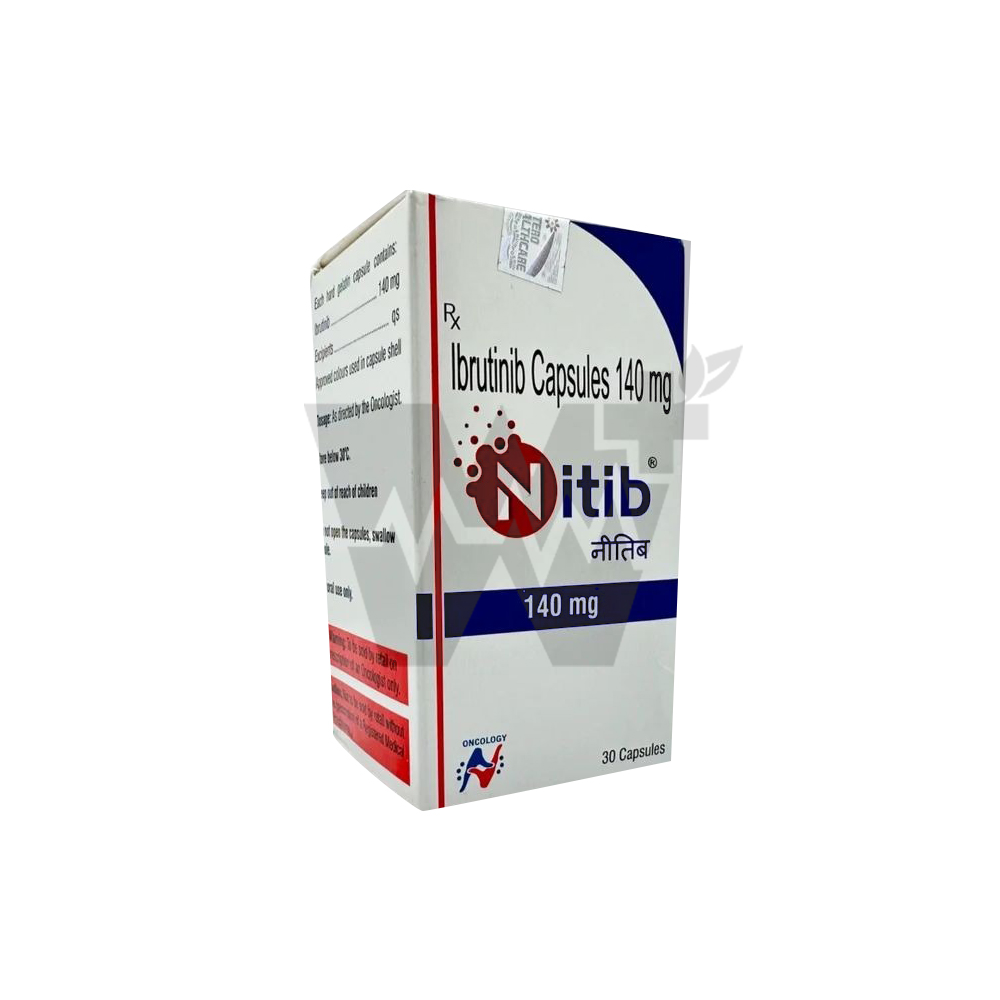



Unlocking Hope:
Nitib 140mg Capsule in the Battle Against Blood Cancer Nitib 140mg Capsule emerges as a beacon of progress in the realm of cancer treatment, particularly for mantle-cell lymphoma and chronic lymphocytic leukemia. Let's delve into the details of this groundbreaking medication designed to combat these formidable foes.
Optimal Dosage and Duration:
Administered under your doctor's guidance, Nitib 140mg Capsule proves its mettle in the treatment of mantle-cell lymphoma and chronic lymphocytic leukemia. The prescribed dose varies based on your specific medical condition, and adherence to the recommended duration is crucial. Regular blood tests, orchestrated by your doctor, ensure meticulous monitoring of your body's response to the treatment. While Nitib 140mg Capsule exhibits efficacy, it's important to note its potential impact on blood cell count, heightening susceptibility to infections. Side effects, such as headache, diarrhea, and nausea, may occur, warranting attention and discussion with your healthcare provider.
Utilizing Nitib Capsule:
Uses of Nitib Capsule:
Mantle-cell lymphoma
Blood cancer (Chronic lymphocytic leukemia)
Navigating Potential Side Effects:
Common Side Effects:
Headache
Diarrhea
Nausea
Most side effects are transient and self-resolving, but persistent concerns should be discussed with your doctor for appropriate guidance.
Unveiling Nitib's Mechanism of Action:
Nitib 140mg Capsule operates as a Bruton's tyrosine kinase inhibitor, a crucial player in the fight against cancer. By obstructing the abnormal protein's signaling, Nitib Capsule puts a halt to the uncontrolled multiplication of cancer cells. This intervention becomes a pivotal force in slowing or preventing the spread of cancer cells, contributing significantly to the battle against mantle-cell lymphoma and chronic lymphocytic leukemia.